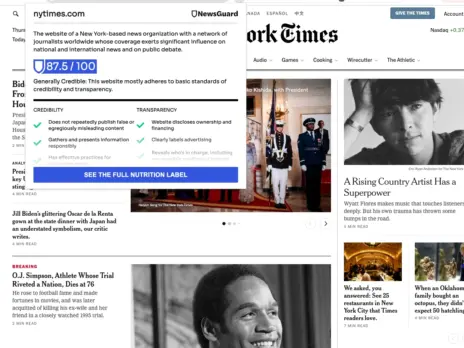
More than two-thirds of adults support tighter regulation of social media sites, according to a new Ofcom report.
The broadcast regulator’s Online Nation report revealed that 70 per cent of some 2,000 adults surveyed in February and March support more regulation of social media, up from 52 per cent who said the same in 2018.
However, Ofcom said that almost half (47 per cent) of these internet users “recognise that websites and social media platforms play an important role in supporting free speech, even where some people might find content offensive”.
Sixty-one per cent of adults have had potentially harmful online experiences in the past 12 months according to the study, which was jointly produced with the Information Commissioner’s Office.
These mostly came under the categories of spam email and fake news.
The most common source of online harm was social media sites, with 69 per cent of those who came across fake news finding it on Facebook.
Yih-Choung Teh, group director of strategy and research at Ofcom, said: “As most of us spend more time than ever online, we’re increasingly worried about harmful content – and also more likely to come across it.
“For most people, those risks are still outweighed by the huge benefits of the internet. And while most internet users favour tighter rules in some areas, particularly social media, people also recognise the importance of protecting free speech – which is one of the internet’s great strengths.”
Forty-four per cent of adults now claim to get news from social media, of which 76 per cent use Facebook, 32 per cent use Twitter, 22 per cent use Whatsapp and 21 per cent use Instagram.
The Government is currently consulting on its online harms white paper which sets out tough new online safety laws to be overseen by an independent regulator.
Ofcom chief executive Sharon White told MPs last week that the case for independent online regulation “is now very strong” and that social media sites have a duty of care whether they are classed as a platform or a publisher.
But she added that the difficulties would be the huge scale of the internet and international jurisdiction.
Digital, Culture, Media and Sport Committee chairman Damian Collins asked White whether she was confident a regulator “could come to a clear definition of disinformation regarded as harmful that it would expect a company to act against – not just hyper-partisan content, but lies”.
“It’s not hugely dissimilar from questions of harm and offence that we already deal with,” White said.
“How we try to get a definition and guidance around this is through a lot of audience and viewer and user research and I think that would be at the core, while obviously being clear that… that does not then encroach into a thriving pluralistic newspaper sector in the UK, but I do think it’s possible yes.”
Culture Secretary Jeremy Wright has previously written to the Society of Editors to assure them that any new online regulator would not step on the toes of existing press regulators.
Read Ofcom’s full Online Nation report.
Picture: Lisa Fotios/ Pexels
Email pged@pressgazette.co.uk to point out mistakes, provide story tips or send in a letter for publication on our "Letters Page" blog







